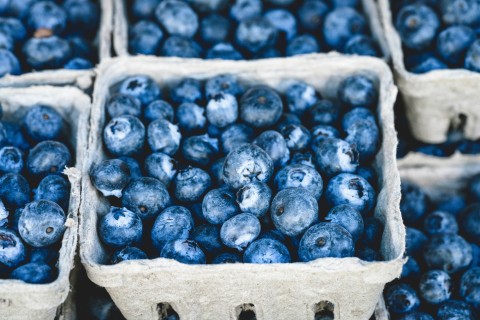Pursuing pleasure
Resistance will be my day job, but I’ll be mindful of restoring my abundant soul.

Our family moved from the D.C. area to a smaller town. There aren’t as many restaurants here, but there are numerous and accessible Farmer’s Markets. Since I no longer try to juggle two jobs as I did in D.C., I have a bit more time to shop and cook. I buy groceries almost every day, and sometimes go to more than one place to pick up the freshest bread. This simple shift in my routine costs less money. Yet, creating dishes, sitting down to a meal, and appreciating each bite has opened up a whole new world of tastes and pleasure. The joy of ripe avocadoes, whipping cream, grilled asparagus, and sweet berries made me wonder if there are other things that I could be doing differently in my life. Could I be pursuing happiness more?
I’ve arrived relatively late to the Enneagram party. During a psychological evaluation in seminary, I learned that was a seven, the Epicure, but the number never made much sense to me. I was not a party-girl; I was an introvert. I was not a glutton; I was an ex-fundamentalist. I didn’t lack focus; I wrote books. Then, at a recent consultant’s retreat, we had an Enneagram facilitator. I asked her, “Is it possible to be an introverted seven, who grew up fundamentalist?”
When she said yes, I looked back at my life and work, certain things did make sense. Having fun, developing friendships, and reframing narratives are all things that sevens do well and they’re guiding principles for my work and life. Yet, there is one thing that I have not been able to do well: I haven’t sought pleasure. Much of my religious upbringing was about a list of don’ts. Whenever I read that Jesus came so that we might have life more abundantly, I assumed he meant after we die. Add to that, my family history is riddled with addiction. So I have always been very wary of pleasure.
I often teach people to use the enneagram to understand what motivates people and gives them joy. In our churches and organizations, when we understand why volunteers show up or employees work with gusto, we can be more effective in our callings. Now it makes me wonder if I’ve cut myself off from something that’s essential to my personality, from what motivates me. Should I be pursuing pleasure more?
Is pleasure even something that we can pursue? Though the “pursuit of happiness” is an unalienable right in our country, I’m not sure that it can be stalked and captured. We think that money or success will make us happy. Yet, I’ve watched people who have gained sudden fortune become miserable in their lives. Others find unexpected success, then their home life becomes unbearable and their marriages fall apart. Harvard Psychologist Dan Gilbert explains that a lottery winner and an amputee both have the same level of happiness one year later. That makes sense when we realize that happiness often comes from the relief from suffering. When a person is wandering in the desert, a glass of lukewarm tap water will bring more pleasure than the most expensive wine served in the finest restaurant. But we don’t try to become an amputee or a desert wanderer to gain happiness.
Nevertheless, I resolve to concentrate on happiness in the next year. I understand that there is a difference between pleasure, happiness, and joy—especially when we come to these terms with a spiritual lens. I’m not planning on snorting bath salts or having sex with multiple partners, but I do want to concentrate on expanding my comfort food, burning more candles, and learning to be cozy. Buying less stuff and experiencing more. Resistance will be my day job, but I’ll be mindful of restoring my abundant soul.






